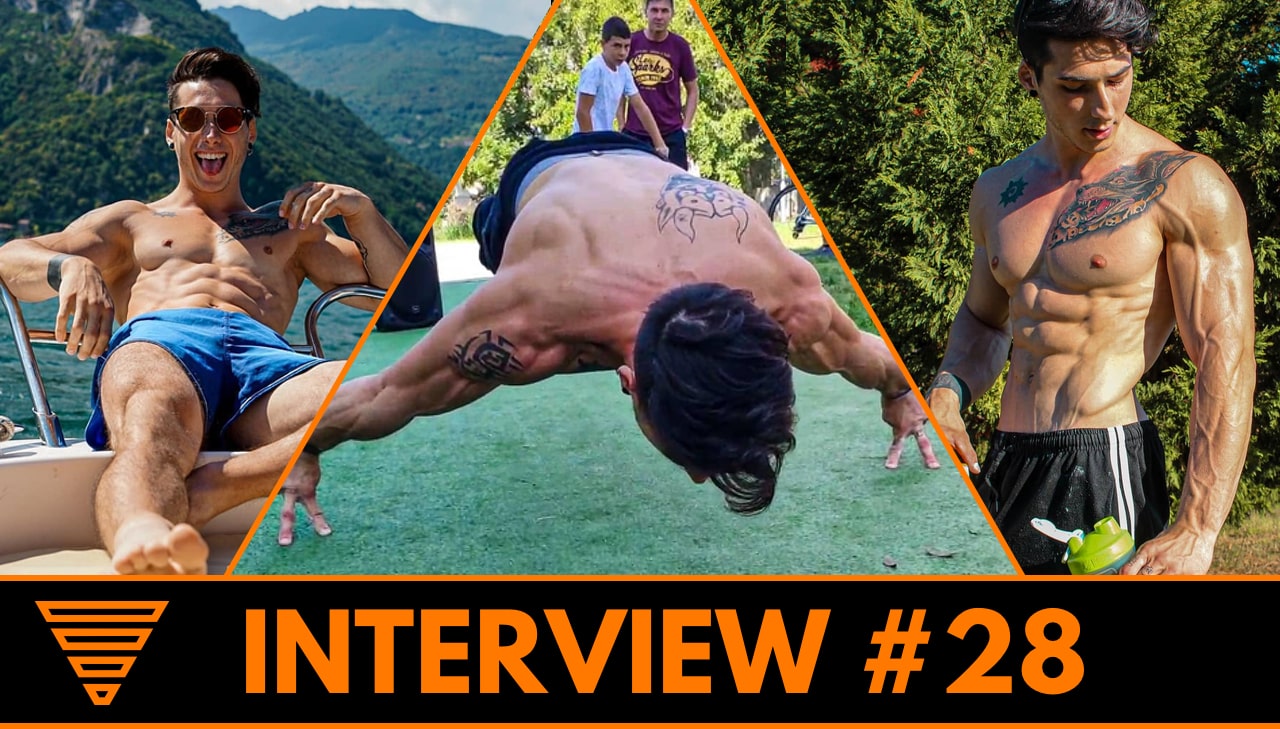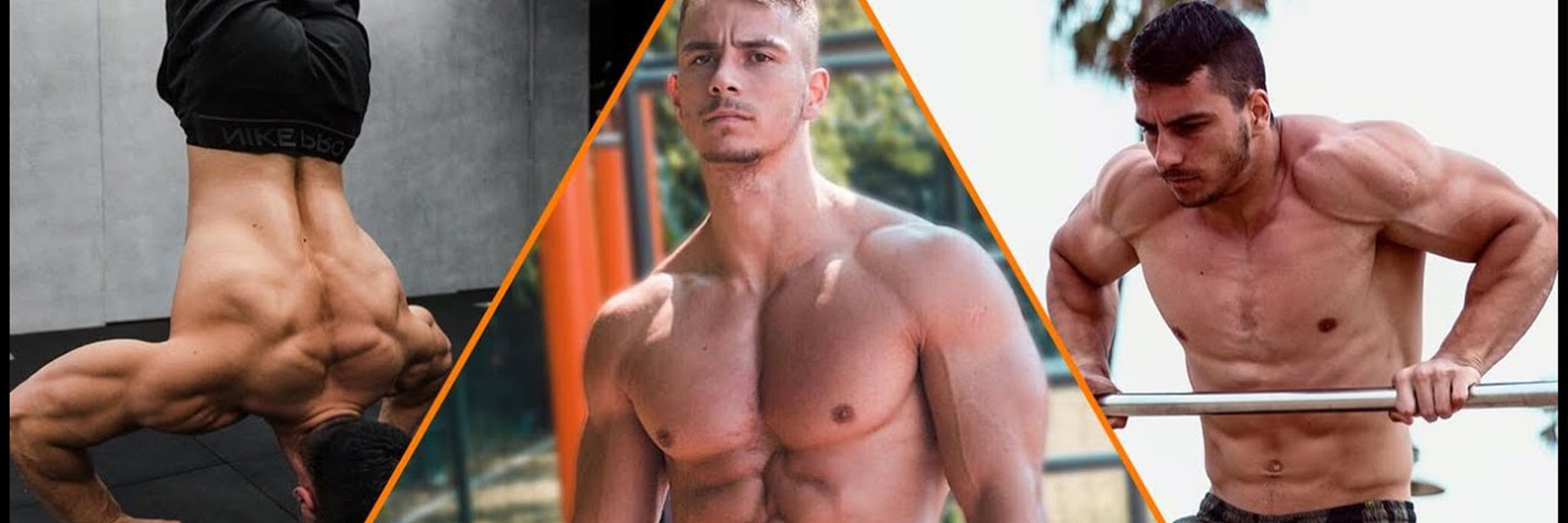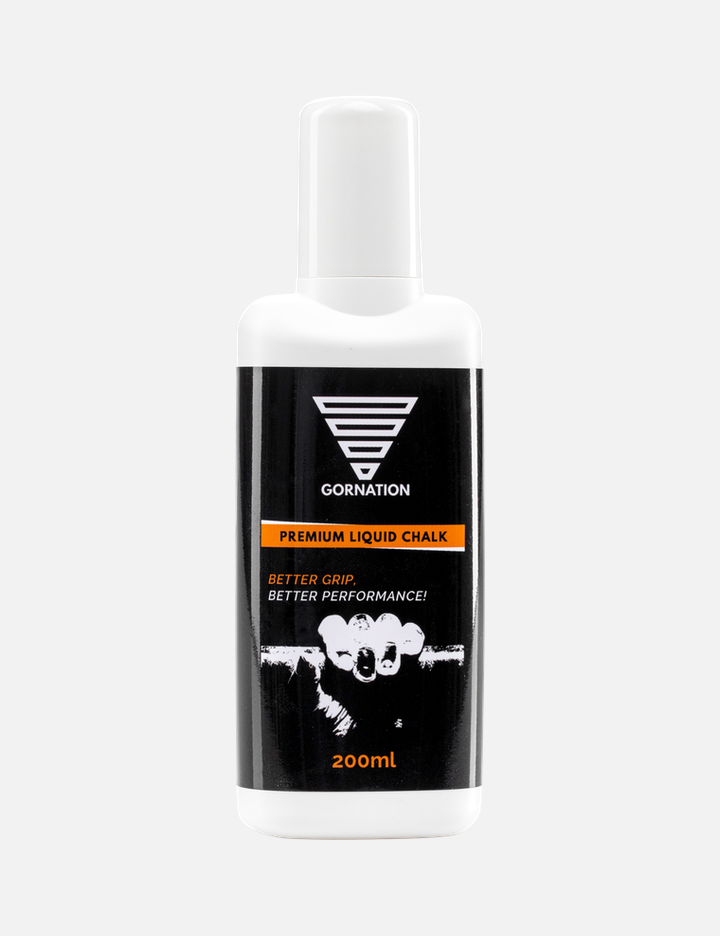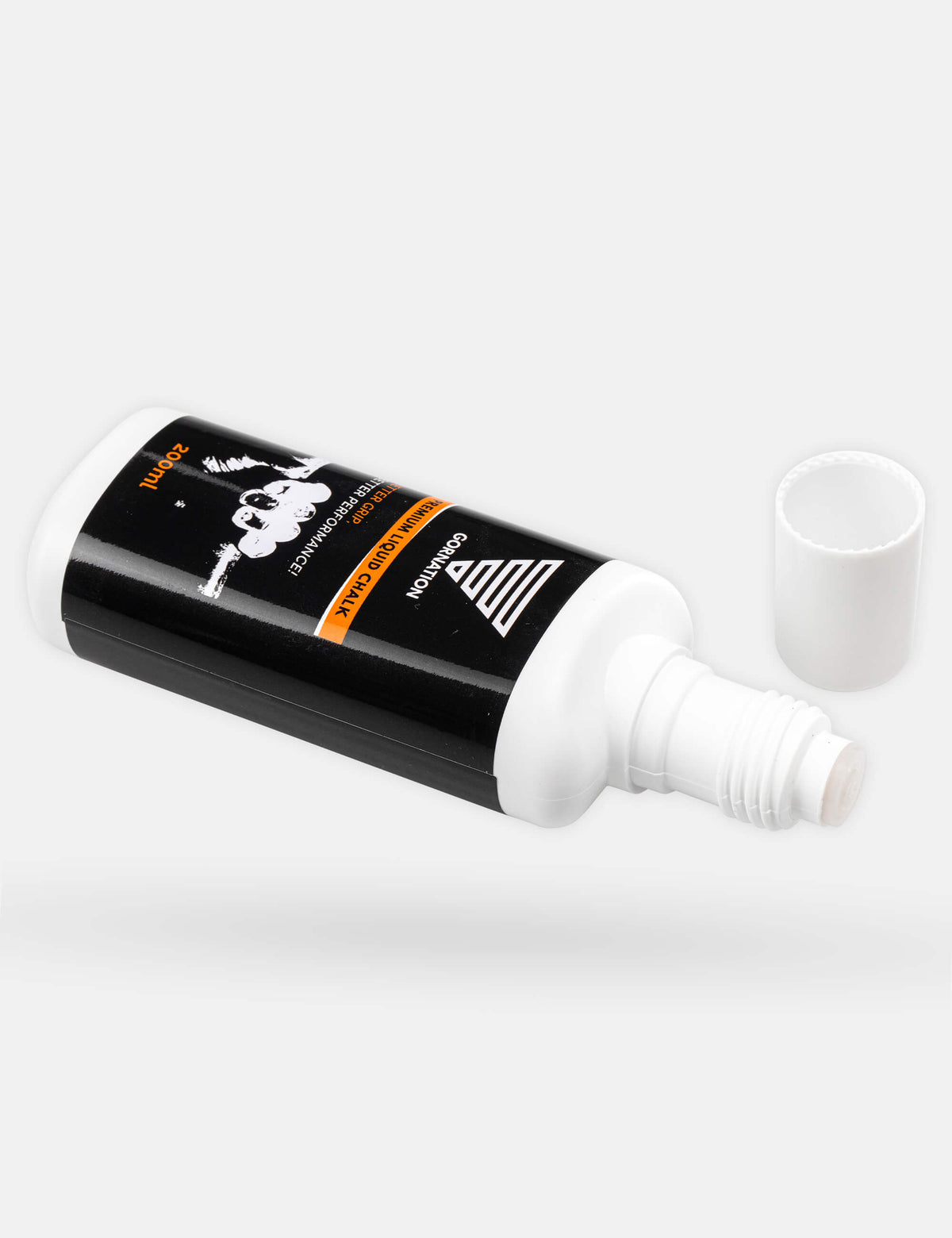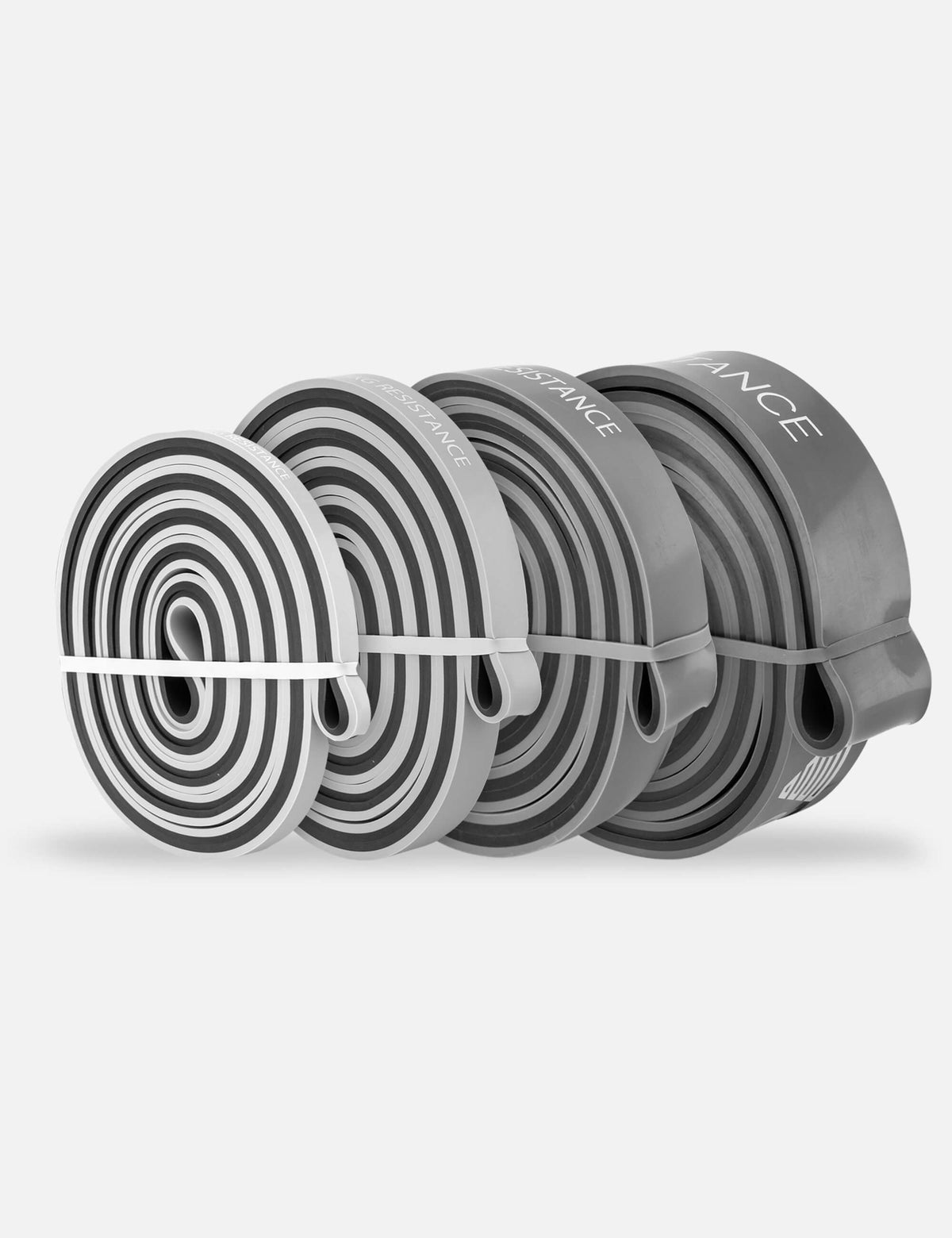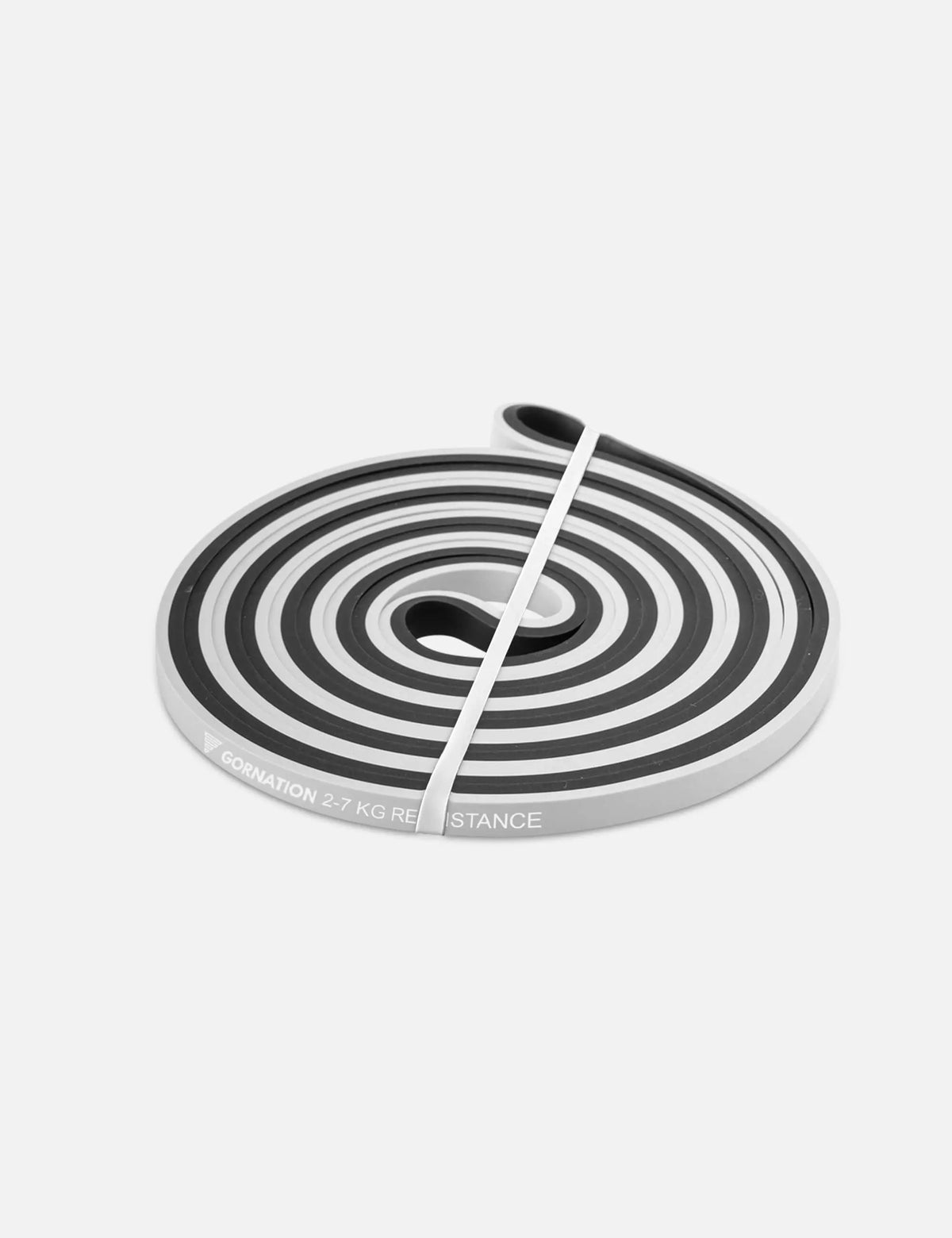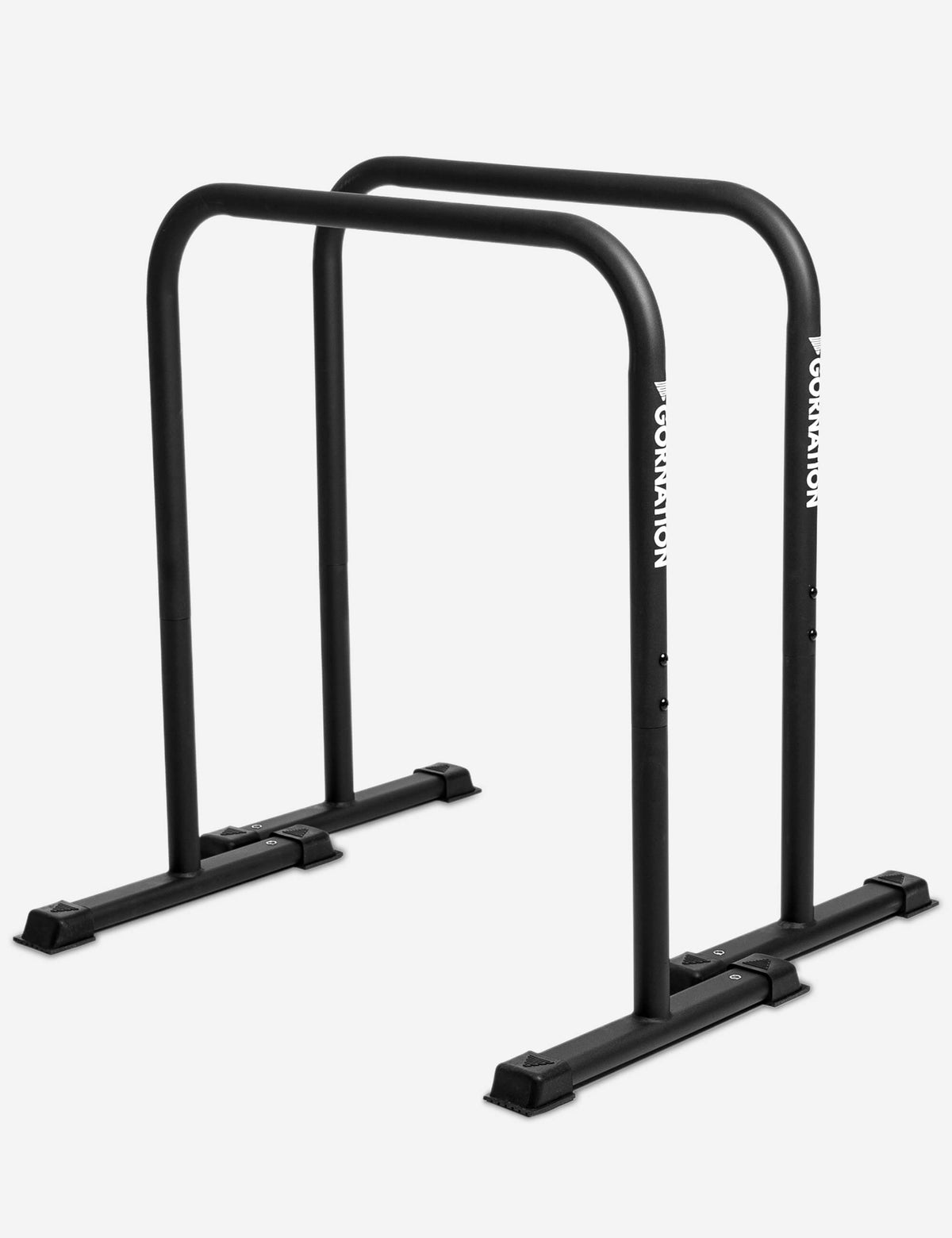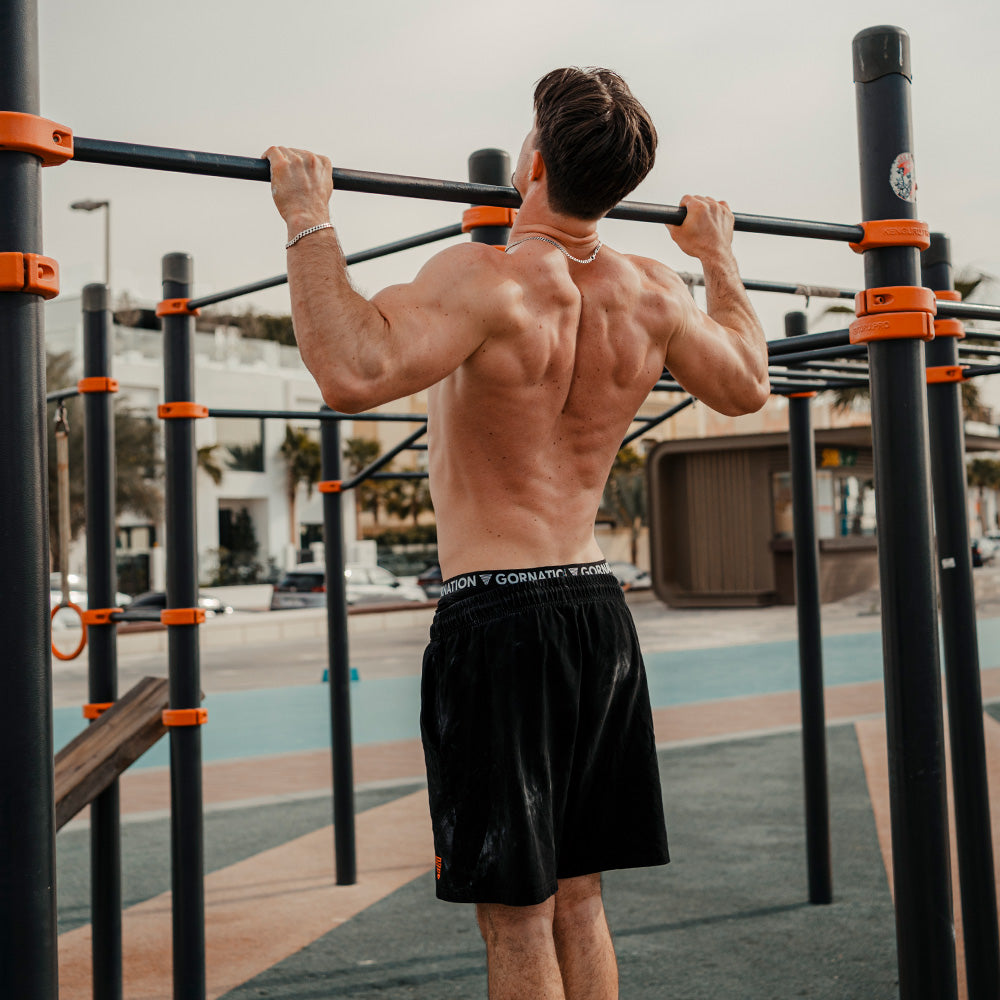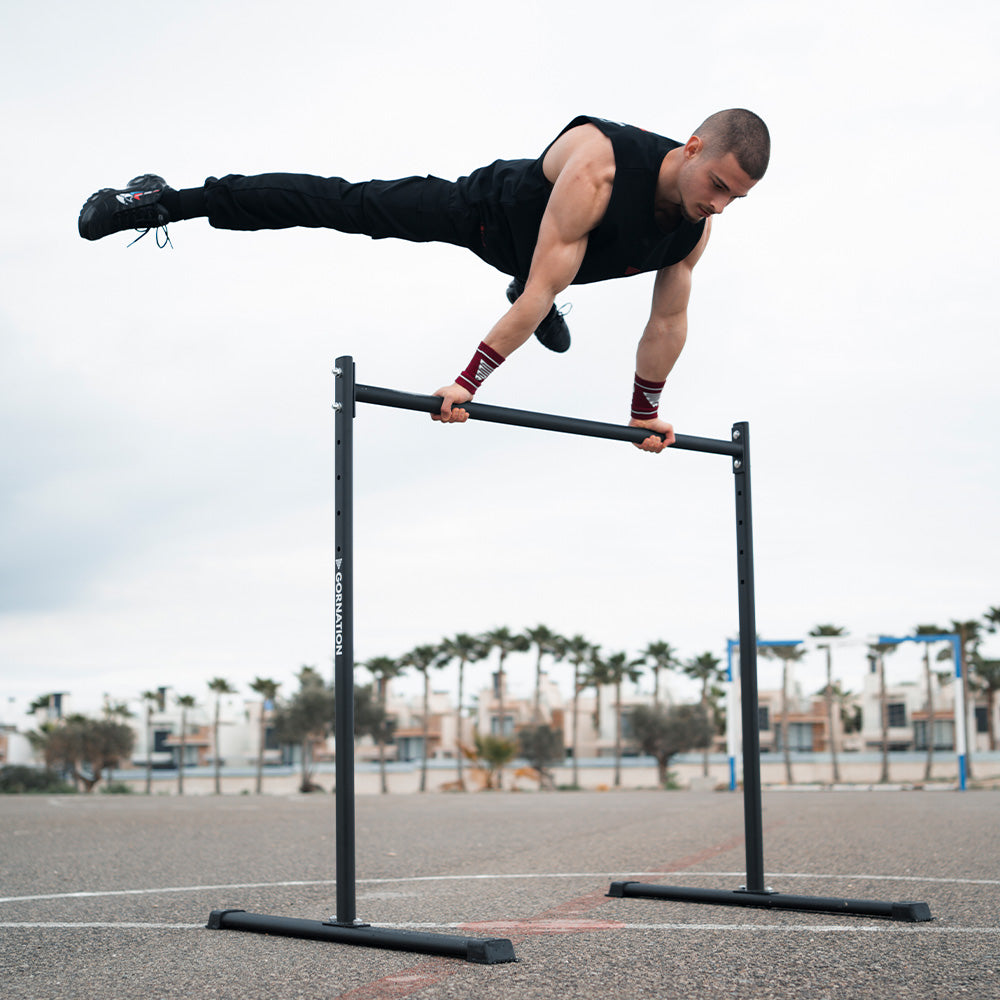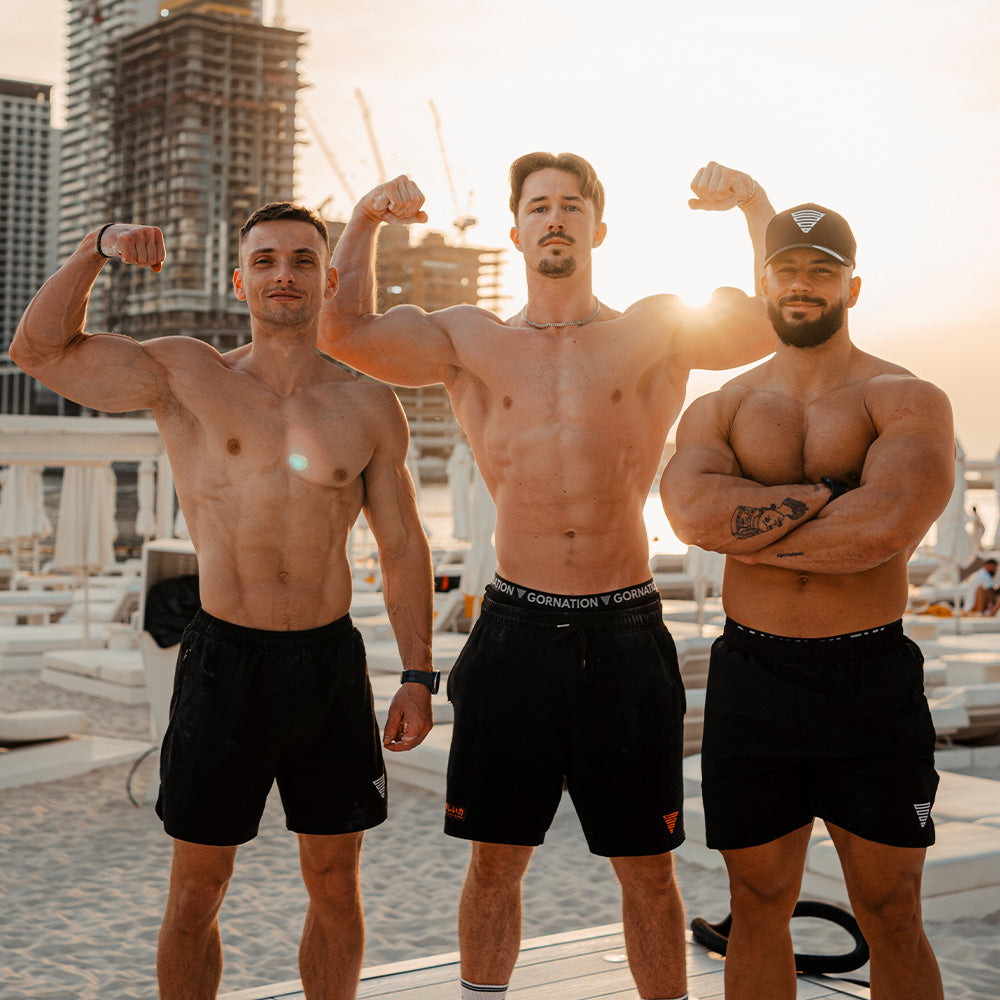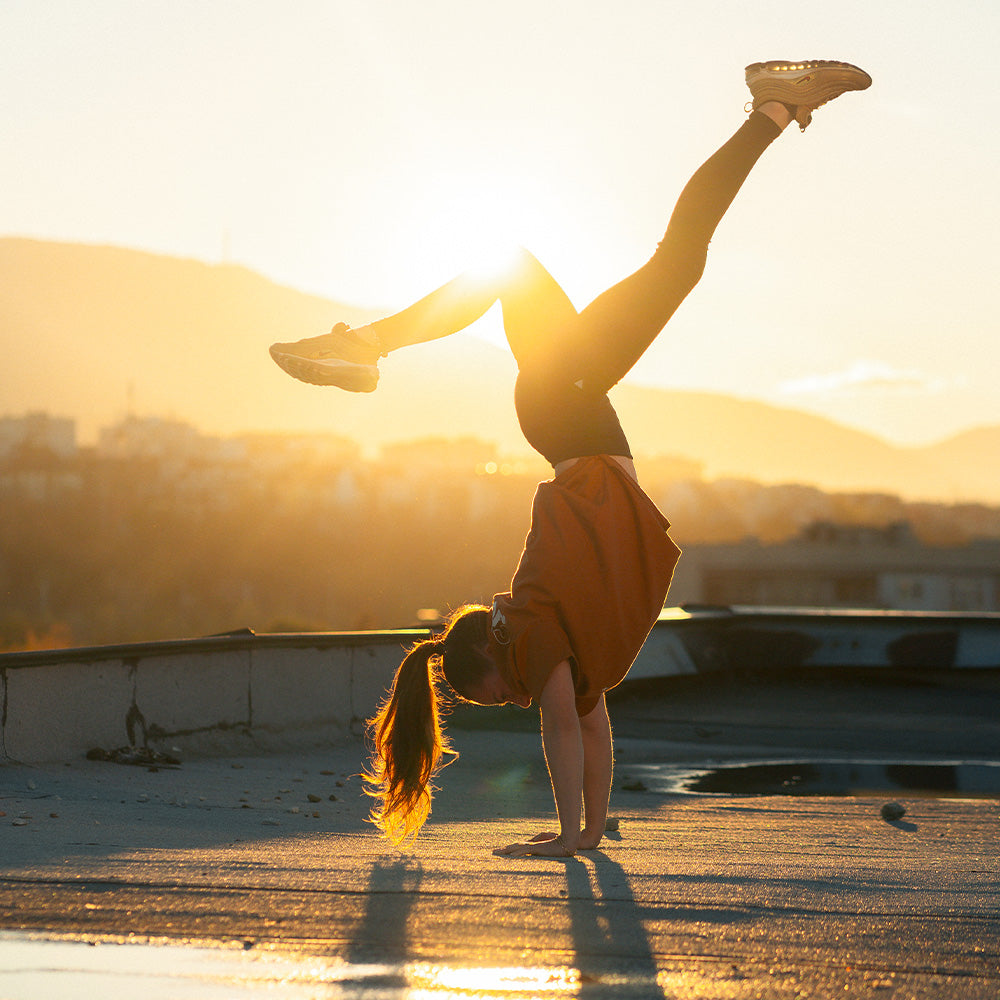ACHIM GÖLLES | Workout Advice combining Statics & Reps | Interview | The Athlete Insider Podcast #49
View the interview here:
Or listen to the interview here:
The text of the interview (translated automatically):
If you have some goals you want to achieve try to think about what is the next step that gets me down so for example if i want to work on the front lever maybe it would be good if you're strong enough an attempt or if not just a pre-exercise for it instead of only doing pull-ups for example yo gorillas welcome to the athlete instead of podcast by gornation my name is phil and today's guest is the two times austrian champion an extremely strong athlete in statics but also in weighted calisthenics i'm happy to welcome you founder of the new killer snakes ahem girls from austria hey thanks for having me yeah thanks uh for making this possible and for the people who don't know you let's directly kick off who are you what do you do yeah i'm achim i'm 24 years old doing calisthenics since almost eight years so i i started like when the sport became more popular in austria i was one of the first people who did it like not who did it but who went to like events and stuff like this so um yeah i me and some friends of mine tried to make the sport bigger in austria so i started i think it's four years ago now daniel calisthenics so i'm doing tutorials um and also just working videos online providing material online and giving virtu workshops and yeah before krona we also had events so i have already been in the austrian street head team so we so we organized some stuff events meetings whatever and yeah that's that's what i do with calisthenics i'm an athlete myself since like also eight years like i said before um i've been to the world championships similar times like two times freestyle two times power instrument and yeah so i'm trying to to like manage being an athlete and organize at the same time which is not always easy since i'm also studying um to become a teacher so yeah i'm doing many different things in my life but that's that's it's mostly about my calisthenic stuff i do yeah and when i like when i have to describe you you're like a really busy person like you're doing a lot of things at the same time um you're like really um uh versatile is the the word that pops into my mind but like you're you're extremely you're doing freestyle you're extremely strong in statics uh but you're also doing weighted calisthenics you also competed there which is really interesting because you combine so many things in in one person um yeah and it's like you're so well networked with you know a lot of athletes in the scene uh you're like um also uh helping with with fibo every year since since 2017 um so yeah i'm looking forward to the interview and um yeah thanks that describes me a little bit so i like i'm a person who likes to do everything at the same time and sometimes it's too much yeah yeah because your day also has only 24 hours so um yeah that's uh i can totally relate um let's kick off with the hard facts people are always asking that uh how tall are you i am 173 centimeters tall okay 73 and how how heavy are you i think i'm 70 kilograms maybe 71 at the time okay yes off of competition uh uh face uh and yeah you already said uh 24 years old right yes perfect then um yeah like uh let's kick off with your story how did you get in touch with the sport uh for me you're one of the the faces maybe not even like maybe even the the face of the austrian killers the next scene and uh yeah let's let's kick off what is your story how did you get in touch with the sport i got in touch with the sport i think it was 2014 when i went to the gym so actually i started working out at the gym when i was 15. before that i did some kind of calisthenics i just wanted to get stronger i was very skinny and i did just some push-ups crunches and stuff at home and then i got to the gym i was allowed to go there when i was 15 trained one year at the gym and in the gym when i became 16 two guys they were training in the gym but they did calisthenics there and they asked me if i wanted to join them and through that i started to try out some stuff like i think the first things i tried was muscle up i already had some good pull ups so i did some aggie muscle up then and handstand against the wall and stuff like this that's how i started even broke down with my first handset against the wall i can't still remember it i fell on my head and yeah so i like started from not completely from zero because i was at the gym before but before i got to the gym i didn't have any experience with strength sports except for this little homework on stuff i did at home and yeah then 2000 i think it was 2016 maybe or 2015 i started to work out in the park more so this was one of the first calisthenics park we had in vienna and from there i kind of got a little bit into the community it wasn't very big the community back then but there was a first competition it was the austrian national championships no sorry it was even 2014 when i got into the park the first time but 2014 there was the first austrian championship and i just went there i was not a pro but i i had some skills and i even got seconds the level wasn't very high and so this was my beginning of getting into the sport as an athlete back then so in 2014 there was already a calisthenics competition in austria like a national championship yes it was the first one yeah wow it was even with edchecko from the bastards what yeah in austria like everybody who doesn't know austria it's like it's a quite small country like uh not completely small but it always um impresses me how like this the country is like so far developed for calisthenics uh in terms in relation to its size i think yeah i think that we are good in organization organizating things but we are not the best in in being the strong-minded athletes because we think very organized you know so if you train in austria here a lot of people isn't that dangerous and isn't that dangerous so we are like maybe a country who is more about where it's more about thinking than training so a lot of people organize stuff but it's not like we are the strongest have the strongest athletes in the world yeah yeah but still so your goals in the uh before before the gym what did you do like you didn't do any sport not even uh like football or um i was actually i was kind i was a cardio guy it's a bad guy i was i was doing um running when i was 13 14. originally 15 still i i was chugging and running i also already competed there a little bit but not on a professional level so em was more like the guy i trained maybe one or two times a month and then i just got to a cup and ran there i was good at it maybe that's why i'm also still not bad at endurance because it was just like i i was born with it and before that i tried some other sports as a child cut out the tennis whatever but nothing never professionally okay and uh when you started you started with um you said like uh handstands uh muscle ups like um did you start with i don't know the goal of uh being becoming good in aesthetics or weighted or was it just uh what was the goal in the beginning i think the goal was to do if i'm honest just to do impressive stuff i was not thinking about categories like statics or dynamics or whatever still not good at dynamics folk but um yeah i was like just trying to be better than i was before and i think i like the thrill of doing something that seems hard or impossible like muscle up for example because i wasn't able to do it so it seemed very hard for me and i like the idea of achieving it i think and since it was something i had a chance to be good in i i went into it i think it was the combination of personal preference and also just having the frill of doing something you haven't done before and did you ever have like um um physique goals in the beginning that you thought yeah i want to gain i don't know 3 4 kg i want to double the size of my arms i don't know yes if i'm honest i'm a little bit ashamed for it but i'm i i started calisthenics only for physique goers wow and when i was 15 because the guys i i mentioned before told me oh you will get bigger with calisthenics and whatever and i already built like 10 kilos of muscles in this in the year of going in the fitness center so i was disciplined there and then i gained some more kilos even with calisthenics but then the goer just i just didn't care about gaining more muscles or whatever anymore so then i switched to go to the skills which was just the thing that was fun to me so it was in the beginning i actually started thinking oh i can gain even more there but then i i did i haven't been interested in it like maybe a few months later i i started to not care about it anymore okay and uh yeah let's jump into this time how did your um development go so today when i see you performing you have like a really really really subtle uh solid straddle planche you have like um you're also like progressing well that's at least my my last update uh for the full planche um like the aesthetics are like really solid um how did they go in the beginning people are always interested in how long did it take from the first work street workout ever like the first calisthenics training to the first uh good straddle planche hold yeah i can tell you the example of the planche and also the front lever maybe because those two are often asked um it was like this in the beginning i did not even think about branch because i didn't know it existed so i was like was the the hardest pushing exercise i could imagine was handsome push-ups against the ward so this is something i did in half reps maybe at the beginning so i can tell you when i started calisthenics my lever and keen was maybe 15 i think i did 20 but not keen one so let's say 15 keen ones and from and maybe the same amount of tips but i i even didn't do dips a lot of tips back then but this was my general lever so i was better in pulling that and pushing and i started to train for the front lever just with doing front lever races i just thought it was in core exercise i didn't even think about holding the front lever i just did front lever races because it was a cool exercise i would i saw and from the beginning on until i held my first not perfect but i until i had my first front lever i was maybe one year yeah one year of time like from 10 to 15 pull-ups to a frontline horde but cleaning it up cleaning it up took maybe another year because i wasn't even focusing on stuff like shoulder depression or stuff like this for the straddle planche i can tell you that it took a bit longer for me i had i started i think one year after i started with calisthenics or maybe half a year then i started working on the branch and it was mainly with tact and also with attempts on the floor but attempt was like starting in a straddle stand putting the hands on the floor and just trying to put my feet up and the same on the parallel bars and from this point of time until i got my first straddle planche solid hold i think it was two to three years so it took me much longer for this branch i don't know why i think i'm not that talented in it but it's not an excuse i was just stronger in the pulling movements from the beginning on and yeah this was the amount of time it took me i trained it like maybe three times a week maybe four times a week attempts like then i switched to attempts for his planche i started to go into the handsome and trying to calm down and that's i how i got my first solid horse then yes oh still not the best at planche right now yeah but uh like what i always um what i was always impressed in because we did uh quite a few fibos together 17 18 19 i think three feebles we did together and um what always impressed me is that like you did these shows and i think in the beginning yeah like you did so many shows and then also workshops and like um i don't know then you also every evening after the fibo you you did your workout and for me it was like what the [ __ ] like what is he doing and um uh the like you did three four shows in a day and the straddle planche was always that clean and that uh like uh such a solid form even though it was a a show you know like and the general public doesn't care if you hold it the the straddle plan for two seconds or five seconds but this was always impressive for me that you always kept the the form and that you always had these uh this um muscle endurance like uh strength endurance um to be able to hold it again so um yeah maybe you can tell us more about your training today and like um how is it possible for you to combine the the endurance parts the strength part with with aesthetics yeah yeah thanks for that like you mentioned before i think it's just something if i'm honest with since i came from running and i i always had an endurance mindset maybe when i started calisthenics i even had some very intense workouts in the beginning um maybe that was a reason why i or always have been good at showing a lot of elements like a long combos for example or a lot of shows so i think this was also the reason i won the championships in austria but maybe not because i have the single best move but because i was able to show a lot of moves in the short amount of time so a higher variation of moves and this endurance i i actually can't tell you a method to get it or whatever but i think it was the it's because of the reason i always trained um aesthetics but also basics and i always also trained basics with the mindset of doing an endurance workout so not every day but i still do it sometimes like this for example i train branch and front lever and when i have a short amount of time i do it in an intense in an intensive workout it's not the best for gaining the perfect form or the longest horse but for the endurance sometimes it's good to have it and right now i actually don't know it i would have to try right now since there are no shows and no competitions i already didn't do that many combos because i was working more on c moves right now but i think that my endurance at the this point of time is a little bit worse but if i would start to train longer combos again it would come very quickly so i would say endurance is the thing that um comes fastest and or can go away fast but you can gain it back fast so i i also trained for the power and strength championship um which was only about endurance in basics like pull-ups tips whatever and at this point of time i also was able to do my strong aesthetics combos so it was very interesting because i trained a lot of reps and endurance and i think this order had always helped me for my combos and aesthetics so i think it's because i always combined basics with statics okay so um if we jump into a peak phase like really a phase where you were at the top of your level um how did you train at these times how did you manage to um yeah because like you you share some some clips of really impressive weighted numbers on your instagram um but also the statics strength how does a like a week um look like where you combine the the weighted or let's also call it endurance workout if you do some basic sets um with high numbers and the aesthetics yeah how a week of training looks like do you mean yeah yes yeah um so i'm actually i'm training very similar at the point of time in some moves i'm stronger than ever before right now in some knots so you it's hard to always keep the labyrinth everything you know but my training generally looked and still looks like this i train upper party strength or calisthenics specific training four to five times a week so i have four times where i like do it with a routine or like i have the routine on it's days i just train on you know and a fifth day is optional however i feel and the sixth day is only for the legs so that's how i train right now and it's also kind of the mold i trained before i had the second leg day back then but i i like tried to now have a more intense like day once a week and the second day of the week where or to do some legs but not only but whatever i how my training generally looks like is that i start off with statics or with hard skills like maybe one on pull ups or deep hands and push-ups whatever it depends on the day and i always try to go from the hardest movements to the easiest ones so in the very beginning i start off with maybe not even with strength statics but with balance like maybe handstand works or whatever and then i come i come to training statics on the most days i train statics not with combos but with hordes just singing hordes or rather pull up reps or whatever and on some days i train the name combos so if i would be preparing for a competition i would do the same but just with combos so i would have a lot more aesthetics in one set if i did a combo with it and i would repeat that until i would say that i was fatigued so i it's mostly one hour two hour whatever um i had have longer rest times in this part of the training and this is my static training depending on the phase i'm in so if i would prepare for a competition i would not be going to stacked planche holes or just drag flag max reps or whatever but if i'm in the face where i just try to build up i do it and in the end after i did the statics work or the strength skills work i'm going to basics right now it's a little bit less weighted only once a week but i also had it twice a week and on the other days where i'm not doing weighted basics in the end i'm doing normal basics sometimes with endurance like with just without uh break times sometimes not it's a little bit spontaneous actually so i'm not having it's planned all the time everything but i have a concept in my mind that i'm following it the concept is that i do four times a week first skills on some days days i try to do more straight arm skills like front lever planche some days more bent arm skills like a faster one and pull up hands and push up one leg day and in the end of my upper body trainings the basics or weighted basics so that's it cool do you feel benefits from the weighted workout for your statics it's a good question because i don't know the answer i i can't tell the difference because i always trained um weighted so i don't know how it would be if i haven't trained it i feel like the general strength and also endurance if i do reps with weighted it's good so the strength i got from is it is good but it's not that easy to say because if you do a lot of weighted calisthenics it will also influence the energy you have in your next workout on the statics so for example if i do um max reps weighted pull ups on monday and i try to do front lever on tuesday or on wednesday it can influence my power so i would say it's a balance that's why right now i'm experimenting with only trading weight at once a week and not twice a week and i'm still making progress at least at the weighted pull-ups that's where i got some new personal records right now and because i have a lot of work for one and pull up or front lever it still helps me do to gain strength there in this in the weight that's but i would maybe describe it like this you can like combine statics with weighteds and it can help but if this if the weighted stuff is your first preference it might come that it influences your static work negatively so the other way around it's okay if you do your aesthetics and then if you feel good you do your weighted stuff it's okay but if you max out your weighted stuff and then try to go to statics it's probably a little bit harder in this way so i would say it helps it can help but it can also be too much and it can also influence your power you get in your aesthetics because you only have a certain amount of energy every week true definitely makes sense um general advice general opinion on basics would you recommend to do basics to everyone um may it be aesthetics athlete may it be a free cell like dynamics athlete yes generally i would say yes i would also say uh the the further you get in calisthenics the less basics you have to do but it can still be beneficial to do it so if you're a beginner or if you just started with calisthenics or if you may be one or two years into it i would recommend to put a lot of effort into basics like for a beginner i would say probably 70 or 80 percent of the training time should go into basics they can maybe try some skills but the basics will be the most most important part so if someone is an intermediate he can maybe work around 50 of the training time with basics and if you're advanced you can even go back to 30 or 20 percent but it's always important to have exercises in your training in my opinion at least in some phases not in every week but in general you have exercises in your training where you're you are able to do just more than one second hold or more than just one rep but for example if you're very advanced and you can do ten front lever pull-ups it's also a basic for you so you will not have to choose another exercise another pulling exercise where you get your reps in because you'll get your reps in or your second hold hold times in with skills so it depends on the lever but i think there is also not a very strict border between skills and basics because as pull-up cannot be a skill for someone who is learning first put up just like a front lever it's a skill for someone who runs the first front lever so i would say like it's important to have exercises in your training where you have longer hard times to get some volume in not always but in at least in months where try to go for volume work or if you don't have a periodization just to generally have it in but it doesn't always have to be basics if you're strong enough you can choose advanced exercises as basic work as well interesting um you also already talked about uh periodization um and um also about volume like all these uh things that i hear are mostly in the in the coaching uh side side of calisthenics um do you have like a let's call it scientific approach or like a really structured approach to your uh training a little bit a scientific approach can actually ruin your fun and even your quality of the workouts if you're trying to figure everything out what's the perfect way whatever there are so many factors we don't know about calisthenics the first it's a new sport the second is everyone is different very different in this sport like the physical measurements of everybody and whatever it's a lot of factors that you cannot scientifically um approach or know like really know for sure so i try to have some things in my mind for example the periodization is a principle that is used in strength for sports like powerlifting but it's also something that comes to me automatically so i try to combine whatever i feel like doing with the things i know in theory and even before i got to know about periodization or i heard something from it i did it initially because i felt like it's like maybe i trained two months of only very hard holds and exercises where i was um like bad at or just attempts whatever it was a little bit too much for my tendons maybe or for my nervous system and my body automatically gave me the feeling of switching to exercises that are a little bit easier for me but that's actually periodization where you say i have maybe one month of training very hard exercises or two months whatever then one or two months with training ex intermediate exercises or like the same exercises but with longer hard times and harder progressions easier progression sorry and maybe then one month with even more volume that's periodization to try to just switch the intensity in different months or different phases of your training so you can approach it scientifically or you can approach it however you like to feel it but i would just recommend to listen to your body for example in some point of training i feel like my tendons of the tens of my wrist i don't have a very thick wrist so sometimes i feel like the tendons of my wrist it's a little bit too much for them on those weeks or months i will not pull a lot of hephestos i will more do more faster rows or whatever for still being strong there and then at some point of time i just feel like doing infestos and then i go for it and it's interesting it's mostly automatically like i would say automatically periodization automatic periodization yeah true like if you listen to your body it it automatically uh like gives you a direction and uh yeah basically advice but you also work together with uh dennis like uh if i have it uh correctly in mind as a as a coach or like um can you explain more how um an advanced athlete uh like you um why does it still make sense to have a coach and to have somebody who who guides you he's not coaching me at the moment at least not officially like i was he officially coached me on a regular basis for half a year it's some time ago i decided to right now be my like not my own coach but i'm not being into a strict coaching program with him but i'm still in contact with him since he's ordered a personal friend of mine so what he is very good at or what i can say from the outside he's very good at is um is teaching athletes with with a like scientific approach or also with an approach that is more about planning very strictly the workouts and he's bringing a lot of athletes that are working with him on a very good level with that my personal opinion about it is that there are some people who like to work this way and who also progress this way but for example if you're a fan guy who just wants to go to the park and do whatever he feels like doing i'm not saying that you should do stuff with platform or whatever but a guy who just is more about like let's say having a more emotional approach this might not be the best way for you because it might get on your nerves that you will have to write down every set and every hole and whatever i also don't like it do it all the time so i can say there are very very good athletes with a very emotional approach on training they just do whatever they feel like doing and they get very good at it because their body tells them what to do and they listen to it and then there are also some athletes who have more scientific approach i personally like to combine both but if i would if i would be allowed to only choose one i would choose the emotional even for i'm a trainer and even for i like to think a lot about what's the best way to work out and to make my thoughts about it it can somehow also put the fun away of it because you try to be make everything perfect but for example sometimes maybe you need to do everything perfect you just need to put your headphones in and do what you like doing and you will be even stronger than if you think about everything perfectly because you automatically do what you should be doing but yeah this is my thoughts on this topic it's it's like i think there are different opinions in it and it's not wrong or right i think it's just a personal thing definitely is so the people that uh are coming for coaching to you uh what what uh what kind of people are those i would say they the most of them like a mixture um i am i'm writing programs for them so i like this approach of having a chadur and whatever especially if you are not an athlete who can afford to only work out and do nothing else you will probably need some kind of rhythm so you even work out and you just have a plan about what you would be doing but i like to combine a scientific approach or let's let's say a very um let's say a strict approach or a planned approach on training i like to combine it with some with let's say this emotional approach where some people just feel like they want to do so they feel like doing whatever they want to do and people who come to me i like to write programs for them but in those programs i also have some open space so i maybe tell them on this day you can do this if you feel like doing it but if you don't feel like doing it don't do it so i like to combine both of it and the people who come to me are of course people who like let's say a professional approach because otherwise they would not have a coach but they still they are not like people who who want to or most of them are not people who want to compete in the new new food near future or whatever um most of them just like to do it for fun so i combine i try to combine both approaches okay so again you combine everything like yes it's it's part of your personality i think yes yes some some people hate me they not hate me for it but i know that there might be some coaches out there who talk maybe behind my back or whatever i don't know it because it's bad i think but i think some people might think this guy is crazy why does he do this but i think that if that if you if you're only into the scientific approach you will also lose some of the realities in the in the practice that's why i try to always think about it so when i write a program i use the scientific approach but i still leave some space open for uh for emotional things like if you feel like doing handstand on that day just do it so yeah yeah i definitely know that from conversations with uh like your competitive athletes who um have like a really crazy schedule and who are like uh being in the gym at uh midnight and doing their workout because they have to do it and they are not allowed to go home before they end the workout the whole workout that's in their head and um that's how they um where they need a lot of willpower to do this and i think only a few people are able to do this over years and years and years and like for example you're in in calisthenics since uh 2014 so like around about eight years now um which is or seven years which is um yeah like um i think there are really few people who are able to do this and who have the the mindset and the willpower to push through this and uh yeah i can definitely i always also see this as kind of periodization where you have like one year of really extreme preparation for a competition you do like everything that it takes but then the next two years or next one year um yeah you just you follow your heart a little bit more you listen to your body more yes so that's why what i'm trying to do and that's what i was trying to do with my with my clients yes um leg workout i'm always impressed when i see your instagram clips where you do some uh heavy heavy squats um and uh like i when i see your shows your static shows i wouldn't expect that at all so um how does it influence your static skills do you feel it when you do your planches your front lever is it maybe even uh yeah productive does it does it support uh the front lever with the lower back or whatever what what you what what what's the thought behind it and the fault behind it is i do it because i like to do it but it's not good for my aesthetics so i can feel one it's interesting i don't know why it's probably because of the lever and because of the angle but the the front lever pull ups are the exercises exercise where i feel the most my leg work out the most so if when i got heavier because of training more legs the front lever pull-up was the number one exercise that got harder for me um so right now i am at 70 kilograms when i was like 63 kilograms i think i had my best front end perhaps better than right now sadly but that's it um and since i gained some of the kilos i gained or on my legs and on my butts it got harder and it makes it harder it's really like this you you have to say it it's like this is a reality it makes your aesthetics harder to train legs try to put a maybe let's say 1.5 kilogram plate or a 2.5 kilogram plate on your knees while you do a front lever you will feel that it's really harder and it's not much if you if you train squats for a longer amount of time it might be that you will even gain five kilograms on your legs and if you try to do a frontal with five kilograms on your knees or maybe even just on your fights you will feel that it makes a bit big difference um so you cannot lie about it it makes it make statics harder and i know that i am also making it harder for myself because i'm training x i still like to do it but i also give my my skills a bigger let's say a bigger birth because i can i can if i can hold a front lever with doing 100 kilogram squats for reps it's harder than being able to do a problem without training legs at all and that's why i know that like maybe from the outside it looks like i have very statics or whatever or it's it makes my statics harder but for myself i i it still has a birth because i know that it's harder because i do it so whatever you want to uh to call it there are a lot of athletes by the way who also have strong statics and also strong gags for example like denton or from england or for example misha from germany um so it's possible but yeah it's it makes it harder the the lower back is just a very smart factor that gets stronger but it's not like it will help you very very much okay and yeah that's mainly i would say this is one thing actually maybe we can talk a little bit about it that a lot of athletes and people who train don't understand it's the biomechanics of calisthenics so i see even a lot of very strong guys who don't think about it but it's very logical it's just like if you let's go from the front level if you do a front lever the the center of your weight might be around your belly so if you draw a line from your hands downwards it might face your belly or your hip so that's the center of your gravity there and everything that's below this center of gravity will make the lever harder so your shoulders and your back will have to be stronger to hold the weights and uh yeah if you if you have heavier legs you will actually just have to have more strength in your shoulders to be able to hold the lever if you have like heavier legs you will have to lean forward more in the full planche for example and this it's harder to hold it then so it's just the biomechanical factor of it does weight on the calves make the front lever uh a lot harder than weight on the butt for example because it's uh closer to the to this line yes if you if you think about it like this it will be like it because like you said it's closer to the land uh it will be like this but i would say it's around the same because if you start maybe squatting the weight you will gain on your butt will be much more than the weight on your calves your calf is a smaller muscle so the percentile gaining will be this may be the same but if you gain 50 more on your butt it will be much more weight than if you gain 50 more 50 on your calves that's why it may be sums up for it i actually don't have the exact measurements we had it in university it was interesting a guy measured the percentile weight of every muscle in comparison to the whole body weights but the calf is not a muscle that has a very high weight in comparison to your body weight but yes it's much harder to put one kilogram on your calf than you put one kilogram on your butt or on your hip while doing the front level you can try it out wow okay so um yeah definitely um and what is the way or is there a way if we like approach this topic from a health perspective and it's healthy to work on on your legs um what way is there to have like um let's say skinny but strong legs um yes you can try to do that it's even something i kind of try to it's not possible to have very very various kidney but strong eggs strength is also like you you need some muscle mass first right but um you can try to generally um work on more let's say coordinative exercises for the legs so for example if you do maybe champs or maybe more balancing work on your legs you can still have intense leg work out but which is more about coordination than about gaining muscle mass but you cannot go around gaining mass on your legs if you work on them so for example if you look at the physique of a sprinter or the physique of a marathon runner the marathon runner will have much smaller legs but odds are not like they will be strong at being good at endurance but they will not be strong at doing a heavy squat so what you could do is having an endurance approach for your legs so you will train the muscle fibers that are strong at endurance more those muscle fibers are not as as heavy and as big as the muscle fibers who are working on maximum strength so in this way you could train legs without gaining a lot of mass there but if you want to be strong if you want to do a maybe a 100 kilogram squat or a 150 kilogram squat or whatever you will have to gain at least some mass in your legs and you will not like the only thing you could say is i'm not eating anything so i can't gain mass but this will also influence your upper body mass and it will also probably be not good so what you could try to do like i i also heard it it's not working but it's a joke you can try those squats and not eat all the day you squats and if you work on your upper body you eat a lot but your body is not working like that so you cannot uh like your upper body and your legs are one part of your body and you cannot try to gain mass in your upper body and doing strength work for the legs and trying to not gain master it's it's just hard but you can train like maybe more endurance or more coordination then you will be able to have leg workouts without adding a lot of mess there probably is there a reps number that uh somebody can aim for to um strain the endurance part is it everything about 15 or 20 or what's what's the number yeah it depends like i would say it's um it's like scientifically you could say like you said maybe 15 to 20 or 12 to 20 there is not the strict border of course you always train some part of the other fibers as well um but of course the higher the reps the less you it will it will the more it will be due for endurance and the less it will be for the maximum strength but yes for example uh for the squats you could say if you do much more reps with with uh less weight you will not maybe not gain that that much mass but still it's a strength exercise so maybe if you go for a long run that's really something that's that might not influence your mess very very much but you can still gain some calves from that so it's not like it doesn't do anything so i can understand if people say i skipped working on my legs completely or i just do mobility work on my legs it's like if you try to stay healthy i would at least recommend to do some mobility work on your legs if you're not working physically and sitting all the day like most people are today with if they are not training then i would recommend to still do some work for your lower body just for having hip mobility and whatever um but you can skip the strength part of course for your health approach it's good to have some basic strength but you don't need to be able to squat 100 kilograms or 150 kilograms if you want to stay healthy it's also okay to just have a little bit less less intensity there cool thanks for the insights that's uh really interesting um in my opinion like the um the like because you're not i wouldn't it's not like a conversation with a um with aesthetics athletes let's say who never squatted and who is like completely against squatting um but it's really uh like that i the interview somebody who is um kind of neutral like kind of a neutral perspective i would say and that's that's rare in the calisthenics you you have the street lifters who are like what you don't trade legs you're not a you're not an athlete you're you have to be a complete athlete and then there are the aesthetics athletes who don't work on the legs at all yeah i think it's just i think it's stupid to have an approach where you will where you say this is what it needs to be this is what it needs to take so if i'm honest some people might not like me for saying that but it's sometimes an ego problem i see in i won't call any names and i also don't have names in my mind but i think it's a general generally something that can happen if you oh if you define yourself by your skills in this sport then you will start being like oh if you don't do it exactly like i do then you you're not as good as i am and if you don't work everything i guess for example if you don't work statics and basics and legs you're not a real athlete but i think it's stupid to have a concept in mind what you have to be to be a real athlete but because it's just a concept it's not reality so i would recommend to everyone to just work on the things that they like doing and if it's squatting then do it and if it's not then don't do it um because this comparison to each other takes the fun away takes the motivation away i think there is no point at all in doing that i would just recommend everyone to do what they feel like doing of course to stay healthy but if you're already into calisthenics there is a much much higher um chance that you are healthy because you're actually doing something with your body because most people don't even do anything for their body so if if you even if you do aggie push-ups and that's it it's still better than doing nothing and that's why i think that it's that it doesn't make sense to compare yourself to others all the time or do other training like principles or whatever of course you can try to get the best out of everything for yourself but i would not recommend you to compare yourself with with everyone sure and there are so many different goals so many uh different uh motives and motivations behind the people that you see on social media why they train and what are their goals and you should never judge somebody just because he's skipping legs but maybe it's his goal to set up some some static records and like why should somebody who is who wants to uh do a statics world record why should he be able to squad 150 kg at the same time like it doesn't make sense yeah it's true so yeah records or like really focus always needs um to say no to other things um and yeah yeah that's why i'm actually happy to not be only into calisthenics and into coaching it's part of my life of course but i'm also like a normal guy i'm even working for a local church and doing some other stuff and sometimes when i think about those calisthenics problem and then i look into the real world let's say outside the calisthenics scene it looks stupid what are those guys arguing about they could be thankful for having a nice sport but instead of being thankful for just being able to do something they argue about what's best and it's an unnecessary problem that we make for ourselves i think and i think it it hinders and it like it really slows down the growth of the sport um if the the sport itself doesn't uh uh stick together then it's it's harder to to grow because nobody wants to be part of a hating community or something yeah well it's a general human problem it's not understandable actually i think the calisthenic scene is one of the friendliest portraits true definitely nothing against the characteristics i really like it true that's that's definitely true um yeah i'm just like always scared that uh the the the many directions that are in the sport with freestyle slash uh dynamics with statics with the street lifting with endurance that it's too much to stick together you know like um yeah but yeah i understand but you're trying yourself to be a i think like donation is a brand that tries to support everything yeah i always think that it's good to not be only about one thing true that's it so we're a little bit the ahem girls of the the calisthenics team we do everything we yeah um yeah we also received a lot of questions about your front lever like um what are the the mistakes that you see people doing in their front lever training uh what is the your general advice for for front lever training maybe um the most useful like people are always interested in something practical so the most useful um progression for you or i don't know just your experience and the mistakes that you see for front lever training yes yes very interesting question because actually i have a front lever tutorials it also got watched a lot of times but some things in there i would maybe say differently right now and i can do it right now um because i think that there is like one of the biggest problems not only in front level but in skill training in general is not to train specific specific enough so if you are just working on tucked front lever it's good for your shoulders maybe but you will not get used to being in the same angle than if you are in the forefront level so your your let's say your hip and your hip flexors and your abs will not be contracted or not at least not very much during um the attacked one and in the fourth one it will be completely so if you for example only work on tact and never go to a progression where your hip is opened you will not get this part of the movement another so this is one mistake i see people not including exercises where their hip is open so for example front lever raises or front lever negatives full front lever negatives on the rings or even half variations are movements where your hip is open so i would recommend to try to at least at a certain level put some of those variations into your training and yeah another problem might be um only working on the core and never working on the shoulders because this is also like if it's a core part and it's a shoulders and back part in the front lever and i think you will have to combine both of them um and one of the main main mistakes is of course to only work on progressions with bad form it won't strengthen the muscle groups you actually need so just going for the hardest hardest progression without being able to do it with any good form it's also not the best thing to do it but i think there is not like just one mistake people do it's just a combination of everything but try to keep in mind to be specific and maybe one last example example i can give you a matching a guy doing a tucked front lever and then straightening his legs and body going into a full front lever imagining a guy being able to do it and you will look at him from the side while he straightens his legs the angry of his uh of his arms in comparison to his upper body will be a little bit smaller so his shoulders will go backwards while his while his legs go forwards because of the principle we talked about before of the center of gravity so he will be in a different shorter position so you cannot also not only just go into training tucked front lever for one minute and expecting to be automatically able to do a very good front lever because it's a different angle so that's just an example i can give it's why it's important to train specifically and to try to also progress yeah so right now if i could only choose one exercise it would maybe even be negatives on the rings for for getting there step by step but of course it's good to have a variation cool um that's uh good you already said how long it took you for the fourth first front over i think it was one year after uh like the the first uh workouts um yeah i think we're um mostly done with the with the workout park uh part work on park a workout part um how does your day look like right now um as you said you're like doing a lot of things right now so maybe you want to share a little bit uh your your day right now how does it look like yeah a typical day of achieving corona looks like that i'm getting enough sleep which is nice because my university is online and right now also not in the mornings but more in the afternoon so i get enough sleep right now which is good sometimes maybe a little bit too much if i'm honest and yeah i get up in the morning however i i just try to sleep seven to eight hours if possible mostly it's actually eight sometimes even nine if i'm exhausted from working out or doing a lot of things and since it's a lockdown i'm i'm going to university as i said before i'm studying to become a teacher at religion sports and biology those so those are the subject i'm studying and i don't have a very typical day because it's a mixture of a lot of different things mostly but mostly i try to do some stuff outside in the mornings so since it's a lockdown and i'm staying at home a lot of time and i really love nature i often go outside in the morning not every day but often um actually i'm doing like let's say inspirational prayer part in the morning i i like to do it for myself i'm reading the bible or whatever that's what i do in the morning mostly it's reading the bible praying or whatever maybe dating sometimes just being a little bit quiet not starting into the day with with a very big rush um yeah they like to do it outside and often i even combine it with with organisatorically stuff that i can do from my phone sometimes even with the laptop outside not always but sometimes so sometimes you could catch me sitting on the forests organizing my emails just because i like to be outside not every day but sometimes and then i might get home have some only university work to do there for example um having the lecture or having to write an essay or whatever it's very different then i might have one or two hours in between it's not planned where i have to do some organ organizing stuff so um since i'm not only working as a coach as i said before i'm also working um like it's not not not very officially but sometimes it's officially sometimes not planning events for the church i'm leading a youth group there so sometimes i'm doing some organizing stuff in between i'm having a personal training in between and yeah it's a mix of a lot of things i don't have a very typical day but i mostly work out on the evenings or afternoons of these days and yes in the evening i like to meet some friends if i haven't met them while working out anyways and to be with my wife at home so yeah it's it's very it's i don't have a very typical day if i'm honest so it but mostly my days a mixture of at least two or three different things so i'm not having sometimes i try to block it i try to just do one university day and then one day just for calisthenics stuff or whatever but it's not always like this right now at this point of time in my life i'm also making a lot of thoughts about the future so me and my wife also think a lot about stuff like global poverty and um also global aid and whatever so we have some connections to african countries and friends in africa who are working there and yeah maybe this will also be part of my future life doing something for this i am not seeing myself only as a calisthenics person i like the sport because it's something that gets people together but in general i'm yeah not only focusing on this part of my life so you might i don't know it i don't want to promise anything but you might see me living in africa one day working for something else and still working out on some bar there probably whatever but i'm not knowing it right now it's just something we are making thoughts about uh yeah it's just because we feel like we're very blessed with our lives in austria we have a lot of like we are rich people everyone who lives in australia germany is rich in comparison to the world and that's why we think about maybe doing doing something for where people don't have it and helping development helping developing like stuff there but it's not nothing that's that's fixed yet it's just something i'm making thoughts about and so that's also i also have some projects for example a project in uganda i'm working on with friends and also some parts of my time are are spent for stuff like this so as i said before a lot of different stuff but thanks for sharing sounds uh really really interesting and uh definitely a respect for that and um yeah definitely really interesting and good luck for that so um something that uh i would be interested in how does your food look like in a day do you take um care like um for healthy food is it do your meal prep what do you eat yes um one like i talked about the topic right now it's one thing i made some more thoughts about in the last time is like biological foods and or buying more local food so i had a food approach of just buying whatever has the most protein or whatever uh is the best for gaining mass this was my food approach some years ago but then i made some more thoughts about the production of the meat for example i was eating and the production of the milk products and of the plants everything i was eating where does it come from is it the goods um like is it a good relationship to the one who is is producing it and whatever um like are the workers in good circumstances so right now i'm combining like trying to combine thinking about um having quality foods best from roker like from the locals um how do it how do you carry it the local producers yeah and whatever yeah not buying not buying meat from argentina or whatever and trying to have a like biological food if i can get it so yeah my my nutrition is mostly vegetarian i'm not the strict vegetarian to be honest so if i'm invited for example i will not say no to meat but i don't cook meat or buy meat on my own same goes with milk but with that i'm not that strict so i'm normally drinking biological milk i'm just not trying to drink some trash kind of milk and yoghurts as well it's produced from milk so it's the same um so i'm not a vegan but i'm i'm making a lot of thoughts about or try to make more thoughts about where my food comes from i'm not a professional and i'm not perfect when i'm honest with it so i still have some things i buy where i'm thinking where does it come from whatever but with that i try to eat still enough eating it healthy my typical day i can tell it to you is maybe some oats uh with some maybe you know it we have i'm happy about that we have it in um biologically it's the yogurts maybe you know it it has a lot of protein so um in austria and we say toph more and german quack it's something like this and i eat it together with some oats and some fruits maybe i will have some eggs with some bread as a snack in between and maybe i will have a second main meal of the day maybe it would be some noodles with vegetables or whatever and i will have some snacks like maybe nuts in between and eating of course fruits or vegetables also in between so i don't have a strict eating written or shadool but i'm trying to eat healthy and i'm also trying to think about where the food i'm buying is coming from which i didn't do before but it's a challenge for me to be honest so sometimes you buy something in the store and then you think about where does this meat come from maybe this cow was one of million cows who was slaughtered in bad conditions and i don't want to buy it if you think about it but it's something you wouldn't have to start doing so i'm trying to think about more to think more about it at the moment i'm not a pro at it so yeah that's what i eat trying to have healthy stuff uh and if possible or the local stuff cool great um yeah the interview is already uh over an hour so we um come to an end slowly um maybe to sum up all the um yeah training advice workout insights that you shared with us um maybe you want to sum up um what are the main three things that if people improved these things in their workouts um they would get much better results much healthier results whatever one thing i would recommend to the people i know i don't know if it's an international problem or just an austrian and german problem is to to actually try to work out and to have a written like trying to get try to get some kind of plan you want to follow it doesn't have to be perfect but but just some structure because as i said before if you're not a professional athlete you might even struggle to work out at art so it's it's good to start with having like at least some kind of rhythm with it so it doesn't have to be strict all the time and you don't have to worry if you skip training for once but try to at least have some kind of rhythm you want to follow it will help you to stay into it this is the first thing um the second thing i would say if you want to achieve some exercises actually go for it i see a lot of people who are just doing basics which is good and very healthy but if you want to achieve a skill you will also have to start working on it specifically so try to choose try to think about what can get me where i want to get so not only what can i do right now some people just work out for the sake of it and that's good but if you have some goals to progress some people don't have discourse they just want to work out to stay healthy which is good but if you have some goals you want to achieve try to think about what is the next step that gets me there so for example if i want to work on the front lever maybe it would be good to do to if you're strong enough an attempt or if not just a pre-exercise for it instead of only doing pull-ups for example yes and the third third thing would be try to have fun when working out because um i feel like we have so many informations about calisthenics out there it gets even more and it's good you have some people say you have to do this and then you have to do this and then you have to do this and then you have to do this um but if it's not fun to you and if it's not something that gives positive energy into your life it will probably not be something that you will keep doing and even if it will not be something that gives you a lot of positive energy so i would recommend you to try to have fun when you work out so work out with with partners if you if it's better for you try to go outside something for me it's very important in those times of the lockdown to work out outside and not only staying at home all the time so try to meet people maybe try to do something that's good for you with with this part wow well that's cool thanks a lot for all these insights we always have some quick questions quick answers at the end of the each interview so um yeah pizza or burger um burger verga um sorry weegen if possible like they are like vegan burgers but it's okay true are you a dog or a cat person dog person do you have a favorite location for holidays just nature spots but not one specific um yeah what are the athletes that inspire you athletes that inspire me i would say a lot of different ones so i don't have one but i try to try to take the best out of each one i have one one i can tell is for example victor camanov a friend of mine cool um do you have a favorite book yes the bible i expected that uh do you have a favorite movie um maybe the chronicles of narnia i don't know if you if you know the movie yeah but i i still liked it as a child very much and i still like it very much even the story that's behind it i like it a lot cool um yeah do you have a favorite skill like what is your favorite skill i would say maybe one finger front lever effect yeah i like it yeah the best calisthenics event you've ever been at oh wow that's hard that's hard there are so many good ones but i think the first fibo was a very nice experience until 2017 the first people i have been to but i don't know if it's there are a lot of good ones um so shout out to bars flakes and two world of buy heroes for for the great fibos where we also get to know each other uh by this by the way um yeah and then the last question not a quick quick uh not a quick answer but uh yeah what's your message to the calisthenics community what do you want to say tell the the listeners i would say um as i said before as well try to make the best of out of the sport try to not compare yourself to each other but try to help us each other and try to try to take the positive parts out of this part for your life sure true words um how can people get in touch with you where do they find you what links can they expect in the bio uh in the in the description of this video yeah um first of course my youtube it's a german channel but there are subtitles for some videos there or for some tutorials um it's daniel calisthenics my home page it's for um for if you want to have a coaching with me or whatever it there's my homepage then calisthenics.com and of course also my instagram ahimgoelis great um yeah then we're coming to an end ahem thanks a lot for your time i really appreciate uh i think it was a really practical episode that's what i always really enjoy if it's really something where you listen and you can take a lot of things for your own workout um so thanks a lot for sharing these insights and uh yeah showing giving giving us your experience in in the sport your long experience so um yeah before you can end the episode and i want to say thank you to everyone listening to this till the end it's been a long interview i always appreciate it extremely if somebody is sticking with us till the end so big big thank you if you are listening to this and yeah if you want to support the episode give it a thumbs up that helps a lot and if you want to have someone in the show just leave a comment down below with the athlete's name and yeah then thanks a lot to you and you can say goodbye and end the episode thanks very much for listening thanks for being there and yeah and don't have nothing else to say have a good one bye.
 | 3.700+ Reviews
| 3.700+ Reviews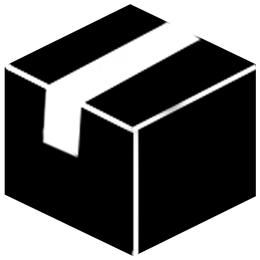 Free EU Shipping above 100€*
Free EU Shipping above 100€*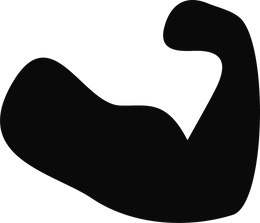 200.000+ Customers Worldwide
200.000+ Customers Worldwide Worldwide Tracked Shipping
Worldwide Tracked Shipping

